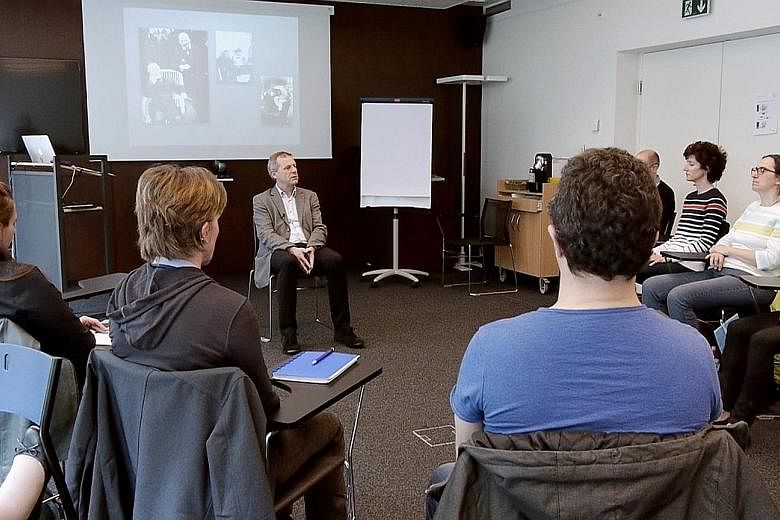BERN • Hypnosis is being used more and more in medical treatment, and hospitals in Romandy are leading the way.
In the large burns unit of the Lausanne University Hospital (CHUV), it is used on a daily basis.
A study has shown that hypnosis reduces the time patients are kept in intensive care and saves 19,000 Swiss francs (S$26,600) per patient, and the hospital now wants to extend this into other departments.
"If hypnosis were a medication, it would already be in all hospitals, but it is an approach and thus it must overcome cultural barriers," says Dr Pierre-Yves Rodondi, a doctor at the University Institute of Social and Preventive Medicine at CHUV. The management has given him a mandate to study how to use hypnosis.
"There are scientific studies, unfortunately ignored by a large part of the medical community, that demonstrate the effectiveness of hypnosis in pain management: It is a tool that should be integrated into treatment. It works with almost everyone, even those who are sceptical," explains Dr Rodondi.
In fact, according to a scientific study carried out at CHUV and published in the journal, Burns, hypnosis helps patients with severe burns to recover faster and cuts the cost of therapy.
It reduces anxiety, the use of drugs, the overall need for anaesthetics and, on average, cuts five days from the length of stay of patients in intensive care.
Saving 19,000 Swiss francs per patient, on average, it would be sufficient to treat just nine burn victims per year by hypnosis to cover the cost of a specialist in the field.
The study - carried out on 23 severely burned people undergoing hypnosis and a group treated in a traditional way - yielded very positive results. For the group treated with hypnosis, pain and anxiety decreased significantly; the number of psychiatric sessions was reduced, and doses of opiates and sedatives administered to address very painful medical or surgical interventions were also reduced.
Wounds healed quicker, as shown by the decrease in skin grafts applied to the "hypnotised" group.
"It could be related to a lower level of stress, but this is just our hypothesis," says Ms Maryse Davadant, a nurse in the intensive care unit and a pioneer in the use of hypnosis at CHUV.
Psychiatrist Eric Bonvin, an expert on hypnosis at the University of Lausanne, explains what goes on in the brain: "Hypnosis activates the areas of the imagination. Everything is seen as if it were true. Imagination is a powerful ally against fear and against pain. Hypnosis has a similar effect to morphine, acting on areas of pain perception that alter this perception, and even get rid of it entirely."


